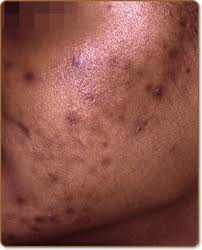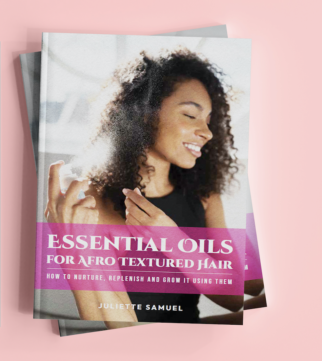As an African American, your skin is super sensitive and there are common conditions that affect your skin and cause greater damage than to non ethnic skin types.
It’s automatically assumed that you can treat African American Skin based on the generic Fitzpatrick scale. This is a chart that’s used by estheticians and dermatologist and it categories skin color into 6 levels. It takes in every complexion from the fairest skinned found in Norwegian countries to the darkest of hues found around the globe. Typically African Americans or dark skinned people are lumped into levels 4-6.
Ok, now if you’re anything like my family, you know that somewhere down the line, someone is going to come out looking like no one else in the family that you know. “Most” of the time, that’s because of genetics. So when you’re looking for products to treat your beautiful black skin and certain things don’t seem to work, it could be that your gene pool has allergies to ingredients that are found in certain products.
Some of the Common Conditions of African American Skin are:
Hyperpigmentation – You’re all familiar with Hyperpigmentation. It will show up at the slightest peek of a sun ray, not to mention when you scratch or pop a pimple. That’s because you have the gift of melanin. Melanin makes you super sensitive to the elements but it also gives you the beauty, shades and hues of your skin.
Natural serums and creams have been formulated to help you bring balance to the skin discolorations that you experience and can be very effective on your skin.
Acne – the structure and texture of your skin is like no other and this is a good thing, but it will cause you a few challenges if you don’t know how to work with your beauty. The mistake we make as dark skinned beauties is that we think the mainstream products will give us the same results as non ethnic skin types. While they might work for some of you they don’t work for most of you.
Over treatment with aggressive products or machines used for exfoliation will cause inflammation and Hyperpigmentation.
Rosacea – Although rosacea is more common to the more fair skinned groups (Irish, English, Scottish, Welsh, Russian and Polish) you can experience it as a person of color. Rosacea is characterized by what’s known as flushing, persistent redness or pustules on your face. Isolated to cheeks, nose and forehead, it affects women between the ages of 30-50 and it can also affect men as well.
Hypersensitivity – As a woman of color, your skin is super sensitive and if you get a chemical peels it’s bound become even more sensitive. However there are many gentle blended peel solutions that will give you great results with minimal surface stimulation.
When these common conditions are treated properly …
Here’s what you’d like to see … you want a smooth, flawless, even skin tone. You can have it, just remember that the way you treat your skin, the foods you eat and the products you use on your skin, not to mention genetics, will all play a very important role in how your skin looks.
As Always …
Dedicated To Your Beauty,
Juliette Samuel
Esthetician/Author/Publisher





 Facebook
Facebook Twitter
Twitter Delicious
Delicious Digg
Digg Myspace
Myspace StumbleUpon
StumbleUpon Youtube
Youtube